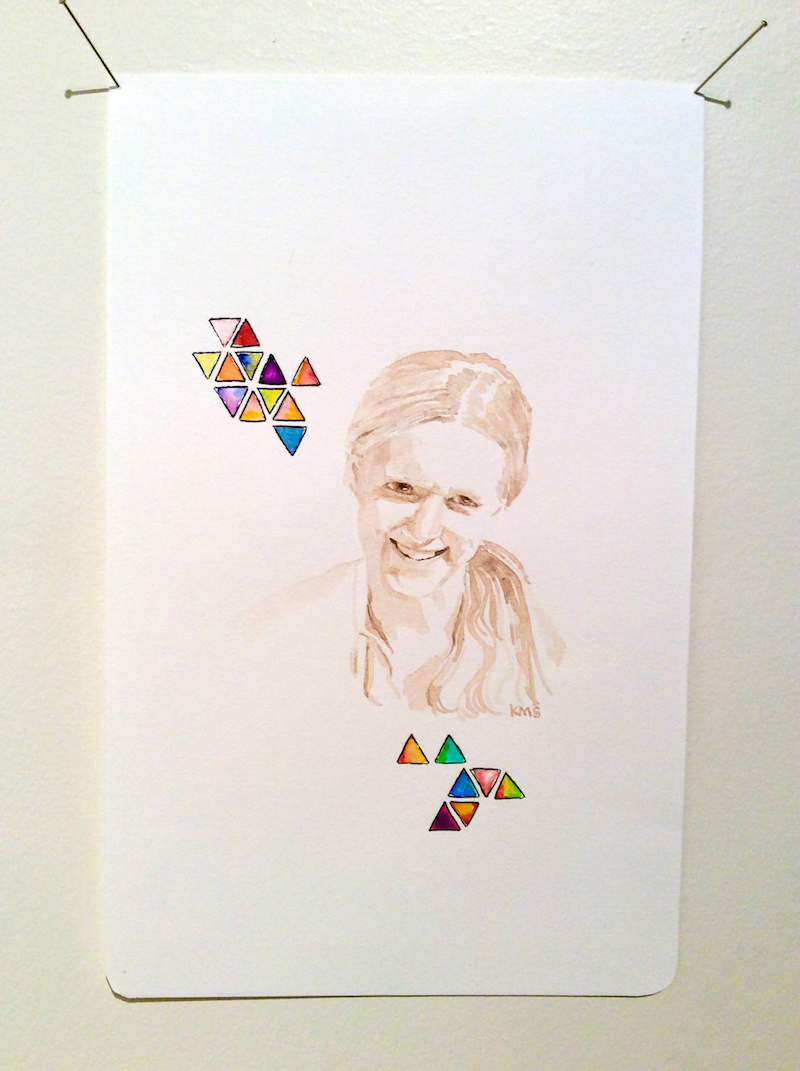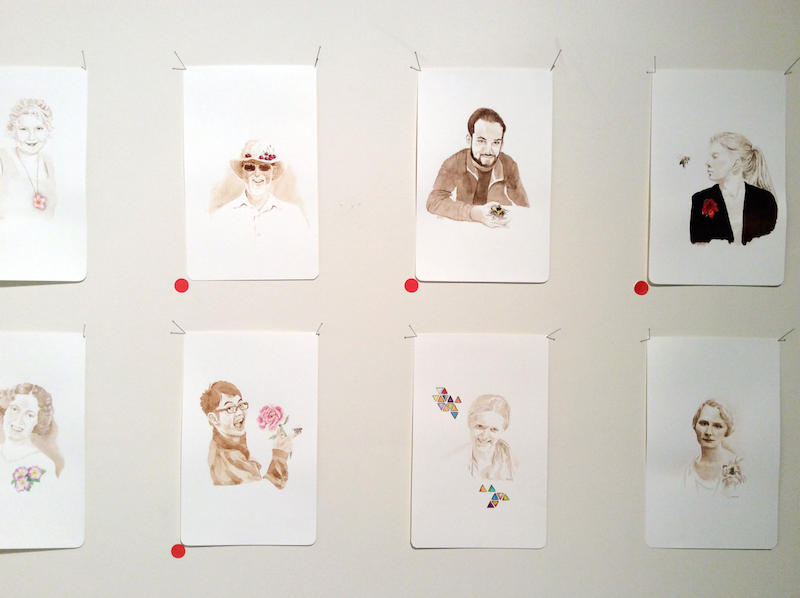
JOURNAL
documenting
&
discovering joyful things
The honeybees and me


Oh hello. Look, that's me in the picture!
Recently I was approached by New Zealand artist Katherine Steeds to have my portrait painted. (I know - lucky me!) It was to be one of 50 small, sepia watercolour portraits (each about the size of a postcard) which, when exhibited together, would cluster and flutter on the gallery walls a lot like a friendly swarm of honeybees.
The exhibition was to be called "The Bee Appreciation Society AGM," and Katherine's purpose was to draw attention to the plight of the honeybee, globally.
You've probably heard the disturbing news that our pesticides are killing our bees. The National Geographic says world is in an unprecedented "pollinator crisis," and projections are that this year we will lose close to 60 percent of the world's honeybee population.
This is sad in its own right, because, the poor bees! But there are some fairly serious implications for us, too, and they are a lot worse than missing out on delicious honey for our toast.
A full third of our foods rely on bees for pollination, including apples, nuts, pretty much all the summer fruits (like stone fruits and berries), onions, broccoli, alfalfa (which is eaten by cows), and a whole lot more.
I don't know about you, but I'm not ready to give up all those delicious foods (up to 100 crops are being impacted) just yet!
Plus, bee health can tell us a lot about environmental health, and therefore about our own wellbeing.
Here are some actions we can all take to help save the bees:
1. If you have room for growing things at your place, plant bee-friendly flowers and flowering herbs in your garden or pots 2. Don't use chemicals and pesticides to treat your garden or grass (products like “Round Up” weed killer and “Confidor” insecticides have been proven to harm bees. Glyphosate – the active ingredient in Round Up – has been banned in several countries for being carcinogenic) 3. Where possible, try to buy organic, pesticide-free, GM-free produce (organic farmers' markets are a great place to find good produce, often a lot cheaper than organic food in the shops) 4. Buy local, raw honey (this is honey that hasn't been treated with chemicals or processed with heat to stop it crystallising.) An added bonus is that it carries a lot of health benefits: it's a good source of antioxidants, has antibacterial and antifungal properties, is filled with phytonutrients, and tastes delicious!
There is some more useful information about this issue on Save the Bees Australia if you want to read up on all this.
In the meantime, pop on over to Katherine's Facebook page and start a conversation with her!
